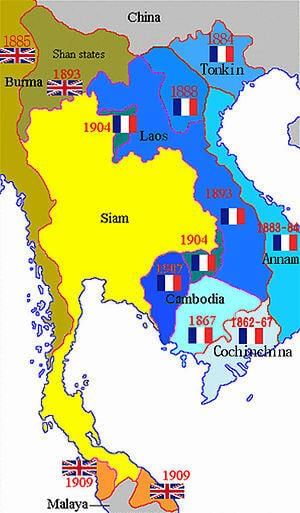Class 10 History Chapter 2 Question Answers - Nationalism in India
Ques 1: Briefly discuss steps taken to remove Chinese and introduce French language in schools.
Ans: The French set up French schools to break off Vietnam from Chinese influence step by step. This task seemed rather difficult. The Chinese language had been in use for long and the Vietnamese elite were also using it. If Chinese was to be replaced then what language would take its place — French or Vietnamese. Some people suggested that French be used as the medium of instruction. They felt the Vietnamese would learn French and the culture and customs of France thereon.
 Fig: The french culture
Fig: The french culture
They wanted to create an atmosphere where the Vietnamese educated class would respect France, its people and ideals. Others suggested that Vietnamese be taught in lower classes and French in higher classes. Any one who learnt French would be made a French citizen.
Ques 2: What was the reason behind depiction of women as rebels?
Ans: In Vietnam women enjoyed greater equality than in China. This was most observed in the lower classes of the society. Yet the women did not have much freedom to decide their future. They had almost no role to play in public life. The growth of nationalist movement led to questioning of the women’s status. Soon writers and political thinkers were idealizing rebel women who had dared to go against social norms. In the 1930s, a famous novel by Nhat Linh caused a scandal because it showed a woman leaving a forced marriage and marrying someone of her choice, someone who was involved in nationalist politics. This rebellion against social conventions marked the arrival of the new women in Vietnamese society.
Ques 3: Read the following poem written by Ngyuyen Dinh Chieu (1822 – 88), a well-known blind poet of Indo-China.
I would rather face eternal darkness
Than see the faces of traitors.
I would rather see no man
Than encounter one man’s suffering.
I would rather see nothing
Than witness the dismembering of
the country in decline.
(i) What had happened to Indo-China by the middle of the 1880s?
(ii) Is the poet celebrating or mourning a loss in this poem? Give examples to prove your answer. Is his blindness significant?
(iii) What is the poet urging the people to be aware of ? Which feelings is he trying to invoke in the people of Indo-China?
Ans:
(i) By the mid-1880s, the French had established a firm grip over the northern region of Vietnam. They had conquered Tonkin and Anaam and, in 1887, French Indo-China was formed.
 Fig: Indo-China
Fig: Indo-China
(ii) The poet is expressing his feelings on the nature of the loss that Vietnam was suffering. He is happy that he is blind and cannot see and is bemoaning the loss of independence.
(iii) The poet is urging people to be aware of the present position of the country, betrayed by traitors and suffering under foreign rule. He is trying to invoke a feeling of nationalism in the people of Vietnam.
|
666 docs
|
FAQs on Class 10 History Chapter 2 Question Answers - Nationalism in India
| 1. What was the Nationalist Movement in Indo-China? |  |
| 2. Who were the key leaders of the Nationalist Movement in Indo-China? |  |
| 3. What were the methods used by the Nationalist Movement in Indo-China to resist French colonial rule? |  |
| 4. What was the impact of the Nationalist Movement in Indo-China on the region? |  |
| 5. What lessons can be learned from the Nationalist Movement in Indo-China? |  |

















